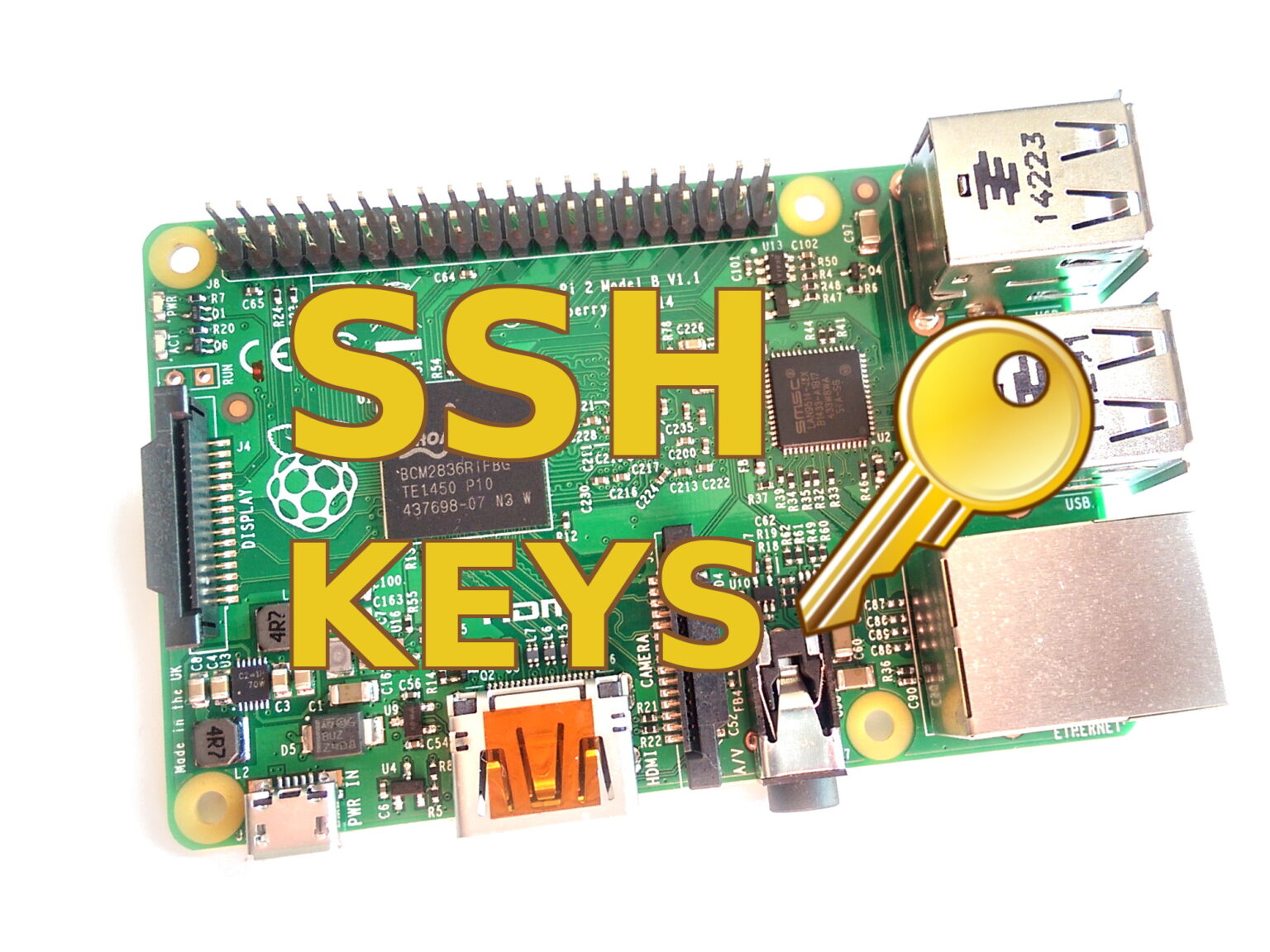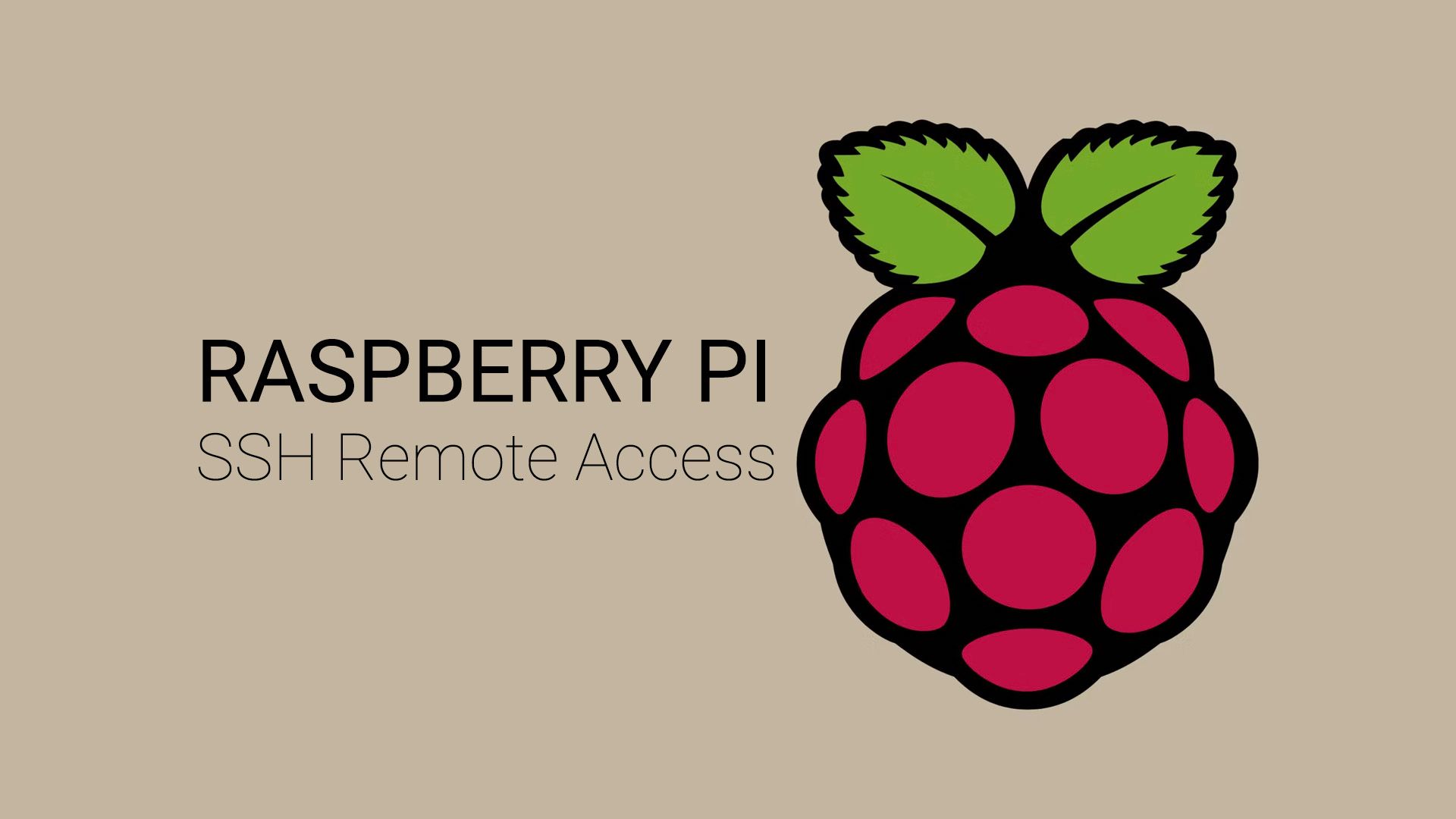Secure Raspberry Pi IoT: Free Remote Platform With SSH Keys
Are you seeking a robust and cost-effective solution for managing your Internet of Things (IoT) devices remotely, ensuring both security and ease of access? The integration of a remote IoT platform with secure SSH key management for Raspberry Pi is the ideal pathway to control and monitor your devices from any corner of the globe.
This article delves into the intricacies of establishing a free remote IoT platform utilizing SSH keys on a Raspberry Pi, with a keen focus on maximizing security and operational efficiency. The current landscape of SSH key management is often fragmented and complex, leaving unmanaged keys vulnerable to malicious actors. However, with a remote IoT platform that incorporates SSH key management, you gain the ability to centrally oversee and discover all authentication keys and SSH login files. The question then arises: can you harness the power of a remote IoT platform, incorporating SSH key integration, that seamlessly functions with a Raspberry Pi at no extra expense? The answer, as we will explore, is a resounding yes.
To provide a clearer understanding, heres a comparison of features available in some of the available platforms, which might assist you in making your choice.
- Stray Kids Skz Ages Birthdays 2025 Bang Chan In More
- Where To Watch Stream Movies Online Your Guide To Katmoviehd More
| Platform | SSH Key Management | Raspberry Pi Support | Cost | Key Features |
|---|---|---|---|---|
| BalenaCloud | Integrated, automated | Excellent | Free tier available, paid plans | Containerization, Over-The-Air updates, device fleet management |
| Microsoft Azure IoT Hub | Requires configuration and setup | Yes, through Azure IoT Edge | Pay-as-you-go | Device management, security, scalability |
| AWS IoT Core | Requires configuration and setup | Yes, through AWS IoT Greengrass | Pay-as-you-go | Device management, security, integration with other AWS services |
| RemoteIoT Platform (Example) | Integrated, user-friendly | Excellent | Free option available | Centralized key management, remote access, device monitoring |
For further information on Azure IoT Hub, you can visit the official website: Microsoft Azure IoT Hub. This provides detailed insight into its capabilities and features.
IoT devices, with their promise of automation, efficiency, and enhanced convenience, represent a significant advancement. However, neglecting their security can expose them to vulnerabilities. The landscape of remote device management is evolving rapidly, presenting new challenges in an increasingly interconnected world. Therefore, deploying robust security measures is critical. Securing these devices, especially those deployed in remote locations where physical access is impractical, is paramount. SSH (Secure Shell) provides the essential mechanism for secure remote access, allowing users to manage devices securely from anywhere. The use of SSH for IoT devices is crucial, but it demands secure key management to prevent unauthorized access. The right approach provides the convenience and security needed for successful IoT deployments. Using SSH with the system user or through SSH key-based authentication, along with standard client tools like PuTTY, offers a solid foundation for secure access. No security vulnerabilities should be present within private client tools and protocols, so ensure that this area is covered.
This article will unravel how the remote IoT platform simplifies SSH key management for Raspberry Pi, thereby ensuring that your devices remain secure and readily accessible. The integration of SSH keys through a remote IoT platform not only bolsters security but also simplifies device management. This encompasses a wide range of devices, from smart thermostats to security cameras, all controllable through a centralized interface. In discussing a "remote IoT platform SSH key Raspberry Pi free," we're referring to a setup that leverages a Raspberry Pi as the central hub for your IoT devices. This is secured using SSH keys, and all this can be achieved without incurring any subscription fees.
- Chicago Pd Stars Jesse Lee Soffer Tracy Spiridakos Dating Confirmed
- Marla Maples Life After Donald Trump Whats She Up To
The remote IoT platform leverages SSH keys to secure communication between your IoT devices and the central server. When a new device is added to the platform, an SSH key pair is generated. The public key is then uploaded to the server, while the private key is securely stored on the device itself. Whether you're setting up a smart home, constructing an IoT project, or managing remote servers, SSH keys provide the gateway to secure and seamless access. Configuring SSH keys for a Raspberry Pi using a remote IoT platform can greatly enhance your project's security and efficiency.
The optimal remote IoT platform for managing SSH keys on your Raspberry Pi will hinge on your specific requirements and objectives. Options such as BalenaCloud, Microsoft Azure IoT Hub, or AWS IoT Core are all viable choices, each with its unique strengths. Selecting the appropriate platform is essential, and it's worth exploring the specific characteristics of each solution. A significant advantage of using a remote IoT platform for managing SSH keys is the potential for cost savings. The "remote IoT platform SSH key Raspberry Pi free" option allows you to leverage the platform's SSH key feature for your Raspberry Pi without any financial obligation.
Once set up, SSH keys liberate you from the need to enter passwords every time you log into your devices. This is an invaluable convenience. Furthermore, SSH keys are ideally suited for automating tasks such as running scripts or transferring files between devices. The functionality of SSH keys becomes particularly important when working with a remote IoT platform. In today's interconnected world, securely managing remote devices poses a growing challenge. The remote IoT platform SSH key free offers a strong solution for both businesses and individuals.
Furthermore, SSH keys can be configured with optional passphrases, thereby adding an extra layer of security without sacrificing convenience. The impact of SSH keys on security within the remote IoT ecosystem is substantial. Within the remote IoT platform, SSH keys play a critical role in securing remote access to your Raspberry Pi devices. Issues such as the remote IoT platform SSH key not working on your Raspberry Pi can disrupt the process. The ability to manage these devices securely from anywhere in the world using SSH is essential.
The underlying principle behind the remote IoT platform's use of SSH keys is straightforward: the platform generates an SSH key pair when a new device is integrated. The public key is uploaded to the server, while the corresponding private key is stored securely on the device. SSH keys consist of two crucial components: a private key and a public key. The private key must be kept secure, while the public key is deployed on the server. This arrangement allows for a secure authentication process that facilitates remote access to the device without requiring password entry.
The advantages of the remote IoT platform SSH key for a free Raspberry Pi are significant, offering an innovative solution for streamlining your IoT projects. Given the growing popularity of Raspberry Pi devices, discovering a secure and efficient remote access platform has become crucial for developers, hobbyists, and businesses alike. While choosing the right remote IoT platform depends on your specific requirements, several features are generally considered essential. These include centralized key management, remote access capabilities, device monitoring, and robust security protocols. The ideal platform provides a seamless experience that simplifies the management of your IoT devices.
When you're managing remote devices securely, the security of the SSH keys is paramount. Here are some key considerations and best practices:
- Key Generation: Always generate strong, unique SSH key pairs.
- Private Key Protection: Store private keys securely, ideally using a password (passphrase). Never share your private keys.
- Public Key Deployment: Ensure that the public keys are only deployed on authorized servers.
- Key Rotation: Regularly rotate your SSH keys to minimize the risk of compromise.
- Access Control: Limit access to the SSH service to only authorized IP addresses or networks.
- Logging and Monitoring: Implement logging to monitor SSH login attempts and suspicious activities.
- Firewall Configuration: Configure your firewall to allow SSH traffic only from trusted sources.
- Regular Updates: Keep your Raspberry Pi and the remote IoT platform updated to patch any potential vulnerabilities.
If you encounter issues like "remote IoT platform SSH key not working Raspberry Pi," troubleshooting is key. Here's how to approach common problems:
- Key Permissions: Ensure that the private key has the correct permissions (e.g., `chmod 600`).
- Server Configuration: Check your SSH server configuration on the Raspberry Pi (`/etc/ssh/sshd_config`).
- Firewall Rules: Verify that your firewall allows SSH traffic on the correct port (usually port 22).
- Network Connectivity: Ensure that your Raspberry Pi has a stable internet connection and can communicate with the remote IoT platform.
- SSH Service: Restart the SSH service after making any configuration changes (`sudo service ssh restart`).
- Key Format: Make sure your keys are in the correct format (e.g., OpenSSH format).
- User Account: Confirm that the user account you are trying to log in with exists on the Raspberry Pi and has the correct privileges.
- Platform-Specific Instructions: Always follow the remote IoT platform's specific instructions for SSH key setup and configuration.
To summarize, the remote IoT platform, when combined with SSH keys, offers a powerful and secure way to manage your Raspberry Pi-based IoT devices. By implementing strong key management practices, troubleshooting common issues, and choosing a platform that meets your needs, you can create a robust and efficient remote access solution. Whether you're a developer, hobbyist, or business owner, leveraging SSH keys with a remote IoT platform is essential for secure and seamless access to your IoT projects.



Detail Author:
- Name : Asha Sawayn
- Username : nhessel
- Email : miles.shields@homenick.com
- Birthdate : 1975-06-29
- Address : 243 Jacobi Drive Suite 472 Hermanmouth, ID 99703
- Phone : +13412650492
- Company : Kassulke-Hane
- Job : Telemarketer
- Bio : Consequatur est iure perspiciatis voluptatem. Iure qui aut at expedita laudantium consequatur.
Socials
linkedin:
- url : https://linkedin.com/in/nils_official
- username : nils_official
- bio : Dolorum quae aut ipsam est et in.
- followers : 4561
- following : 2301
tiktok:
- url : https://tiktok.com/@nils5976
- username : nils5976
- bio : Excepturi veritatis aut maiores unde enim.
- followers : 2648
- following : 709
facebook:
- url : https://facebook.com/nilsmonahan
- username : nilsmonahan
- bio : Doloribus provident sed dolores deserunt.
- followers : 3888
- following : 2648